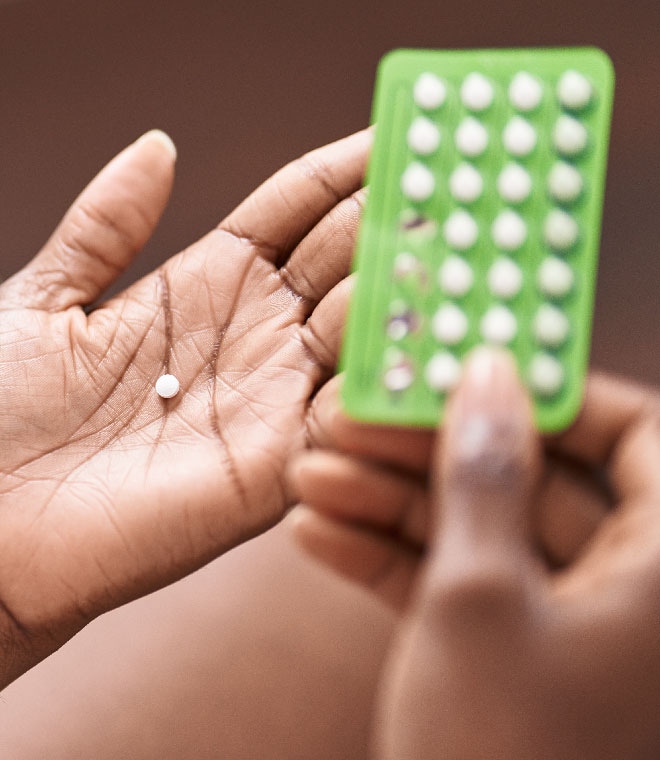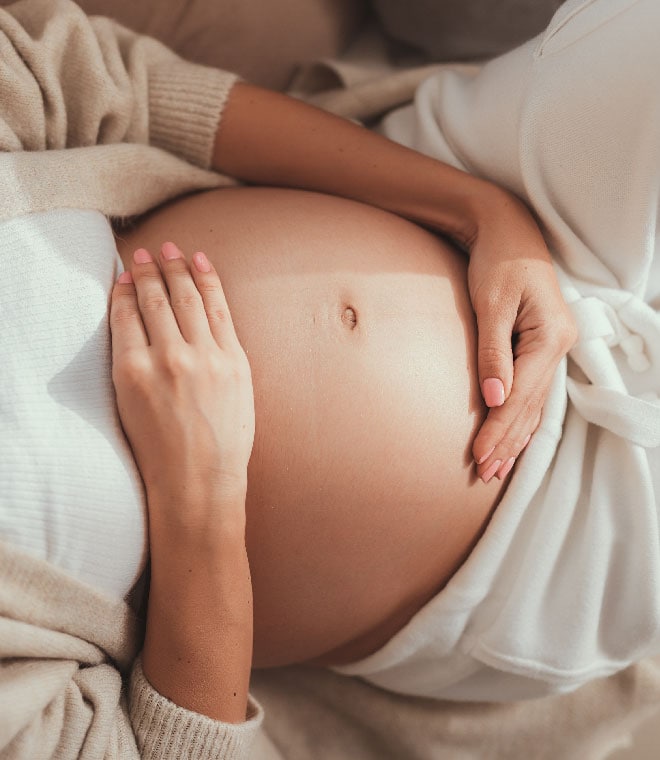Health
What is the difference between miscarriage and period?
By Patricia Ann Convery, MD, Fellow, American College of Obstetrics and Gynecology Jul 25, 2023 • 5 min
Vaginal bleeding is a part of a woman’s monthly menstrual period, and it’s also one of the most common symptoms of a miscarriage. As a result, some women wonder how you can tell the difference between the two.
What are the symptoms of a menstrual period?
A menstrual period marks the beginning of the menstrual cycle, a series of hormonal and physical changes that prepare the body for pregnancy. About halfway through the cycle, the ovaries release an egg that can potentially become fertilized by a man’s sperm. This release is known as ovulation.
During the menstrual cycle, the lining of the uterus grows thicker so that an egg can implant if it does become fertilized. If no pregnancy occurs following ovulation, the body sheds the excess uterine lining through menstruation, and the menstrual cycle restarts.
Some symptoms of a menstrual period include:
- Vaginal bleeding that lasts from three to seven days
- Abdominal cramps
- Back pain
During the days leading up to a menstrual period, women may experience premenstrual syndrome, or PMS, due to hormonal changes. Some common PMS symptoms are:
- Breast tenderness
- Bloating
- Acne breakouts
- Fatigue
- Mood swings
Both PMS and menstrual symptoms can vary from cycle to cycle.
What are the symptoms of a miscarriage?
A miscarriage occurs when a pregnancy ends prematurely, before 20 weeks of pregnancy. It most often occurs when there are problems with an embryo’s chromosomes. Most miscarriages happen during the first 10 weeks of pregnancy. It’s possible for a woman to have one before she’s even sure that she’s pregnant. Symptoms of a miscarriage can include:
- Acute heavy vaginal bleeding or spotting that can last for several hours
- Abdominal cramps
- Back pain
- Passing tissue through the vagina. However, some women may not experience this symptom.
- Dizziness or lightheadedness
- Reduction in or complete resolution of pregnancy symptoms like nausea and breast tenderness
Although most women do experience symptoms during a miscarriage, it’s possible to miscarry without any noticeable signs.
Differences between a miscarriage and menstrual period
Since miscarriage and menstruation have symptoms in common, it can be very difficult to tell the difference between the two on your own. However, here are some potential differentiators between the two:
- Different bleeding pattern: Most women have consistent periods that last for roughly the same amount of time and are similar in terms of the heaviness of flow. The bleeding pattern from a miscarriage is likely to be different from what a woman is accustomed to during her monthly menstrual period.
- Intensity of cramps: A miscarriage may cause more intense cramping than a menstrual period. However, some women do experience severe cramps during menstruation as well. The farther along you are in your pregnancy, the more intense the cramps are likely to be.
- Heaviness of flow: During a menstrual period, it can be normal to pass some blood clots. But if you’re passing clots larger than a quarter, you should see your healthcare provider as this is considered heavy bleeding. Women experiencing a miscarriage may pass larger clots, up to the size of a lemon. If your bleeding is ever heavy enough that you are soaking through more than two pads per hour for two hours or longer, you should seek immediate medical care, regardless of the suspected cause.
The importance of seeing your healthcare provider
Abnormal vaginal bleeding and cramping should be evaluated by a healthcare provider since it may be caused by a different health condition. A pregnancy test isn’t necessary for everyone, and you may be experiencing a different health condition. If you’re having a miscarriage, there are medications and other treatments that can help.
Vaginal bleeding during pregnancy doesn’t always indicate you’re having a miscarriage. Some people experience implantation bleeding or spotting, which can be normal during pregnancy. However, bleeding can also be a symptom of a potentially serious complication in pregnancy.
Even if you’re not pregnant, severe bleeding or cramping during your period could indicate that you have a health condition. Finding out the exact cause of your symptoms starts with an examination from your healthcare provider. Normal periods can often be managed with feminine care products and menstrual pain relief products.
Published July 2023.
Sources:
- https://www.plannedparenthood.org/learn/pregnancy/miscarriage/how-do-i-know-if-im-having-miscarriage
- https://my.clevelandclinic.org/health/articles/10132-menstrual-cycle
- https://medlineplus.gov/ency/article/001488.htm
- https://health.ucdavis.edu/obgyn/services/family-planning/early_miscarriage.html
- https://medlineplus.gov/ency/patientinstructions/000614.htm
- https://www.acog.org/womens-health/experts-and-stories/the-latest/what-happens-after-a-miscarriage-an-ob-gyn-discusses-the-options
- https://www.plannedparenthood.org/learn/teens/puberty/whats-periods
- https://www.womenshealth.gov/menstrual-cycle/your-menstrual-cycle
- https://familydoctor.org/condition/early-pregnancy-loss/
- https://americanpregnancy.org/getting-pregnant/pregnancy-loss/signs-of-miscarriage/
- https://my.clevelandclinic.org/health/diseases/9688-miscarriage
- https://www.cdc.gov/ncbddd/blooddisorders/women/menorrhagia.html




